- Home
- Seanan McGuire
When Sorrows Come Page 16
When Sorrows Come Read online
Page 16
In addition to the wire our Satyr friend had tripped, there were two more at floor level, and one at slightly more than average head height. Someone had really wanted to make sure no one made it into this room.
“You can follow me if it makes you feel better, but no magic, and don’t touch anything,” I said to Tybalt and Raj. “I’d prefer if one of you could stay here to tell the others what’s going on.”
“Raj will remain,” said Tybalt, in a voice that left no room for argument.
I couldn’t blame him for that. I’ve run off into certain danger often enough without giving him the chance to come along, and if he wanted to stay with me now, that was reasonable. Ridiculous, but reasonable. “Make sure you don’t hit any of the wires, and try to avoid bumping the walls,” I said, starting for the door, canister of frosting still in my hand. “The tripwires activated powder, so we’re looking at something inhaled, but it could be something that acts as a contact poison.”
“Poison existed before I knew you,” Tybalt said, sounding half-amused, half-exhausted. “I assure you, I understand how it works.”
“Then let’s go.”
eight
Stepping over the frosting-covered wires was easy enough, although I had to hike my dress almost to my knees to keep it from dragging in the mess on the floor. It would have been easier to cut it off at mid-thigh, but—and this was key—Stacy was already going to kill me over one little easily mended stab. I didn’t want to antagonize her further until it was me or the dress.
The frosting was slippery, but not quite slippery enough to knock either one of us down. Once, it would have been. Once, I would have gone ass over teakettle before I made it to the first body.
And sadly, it was a body. Any regret I’d had about showing sense and not immediately charging after the Satyr went away when we reached him. He had fallen face-up, and his eyes were red, like every blood vessel he had had burst at once, flooding his field of vision. A narrow trickle of blood had run from his nose to his upper lip, and when I inhaled, I could smell it, rich and loamy and cold. Satyrs are almost as connected to the land as Dryads are, and it was reflected in his magic.
I could also smell the poison. Not in the magic, but in the blood, which resented its intrusion and warned me away at the same time. To try to ride this man’s memories would be to invite the same death upon myself, and while I couldn’t be sure it was a death I wouldn’t recover from, it felt like it could be.
Maybe “will this kill me” isn’t the best game to play by gut feeling alone, but when my choices are that or risking exposure, I’ll go with my gut, thanks.
Tybalt was only a step or so behind me, navigating the hall with a Cait Sidhe’s grace. I paused when I reached the Candela. She was lying on her side, face toward the wall. Unlike the Satyr, her eyes were closed, and there was no blood. There was also no broken glass. The carpet around her was plush and clean. I looked up.
There, clustered together in a corner like frightened puppies, were her Merry Dancers.
Which meant that Caitir, whatever else she was, wasn’t dead.
“Tybalt,” I said softly, and elbowed him in the side, pointing. He followed my finger, eyes widening as he saw what I was pointing at.
“Oh,” he said, voice hushed. “I see.”
“Yeah.” Dammit. I should have asked that last guard to stay behind rather than escorting the High King to safety. We needed someone who knew the knowe well enough to tell us how to get to their infirmary. “I know this is asking a lot of you—I understand that—but will you go and ask Maida where we can get a doctor in this place? I don’t want to touch Caitir until she’s been looked at by someone with actual training, but I don’t know how long she has without intervention.”
The look Tybalt gave me was anguished. “Your request is reasonable, little fish, and I hate you for making it,” he said. Then he grabbed my shoulders and turned me to face him, staring at me for a long moment before he pulled me close and kissed me.
It was the kind of kiss that usually gets described as “last.” He kissed me like the world was ending and he was never going to have the chance to kiss me again, like he knew that the moment he left, I was going to do something genuinely foolish.
“I will be right back,” he said, and stepped into shadow, and was gone, leaving me alone with the unconscious and the dead.
I sighed, closing my eyes and tilting my chin upward, toward the ceiling. I stood there, perfectly still in this room that smelled of blood and poison and unfamiliar magic, and said quietly, “It’s all right now. I’m alone, but that’s not going to last.”
The whisper of wings almost too soft to hear rustled around me, and a voice I knew all too well and didn’t know at all spoke from the air immediately in front of me. “You don’t belong here.”
“Hello, Gordan.” I opened my eyes and tilted my chin down, looking at the Barbie doll-sized figure that hovered in front of my face, tattered autumn-leaf wings beating frantically to keep it aloft. “You don’t either. You died in California. Why so far from home?”
“The dead go where they please, and I had no interest in joining a flock that would intersect so often with the one that held your loved ones.” She had a face deeply seamed with lines, like crevasses in rock or wrinkles on the face of a human, and a short, spiky shock of bone-white hair. I hadn’t seen her since the day she died.
Technically, I wasn’t seeing her right now. The night-haunts wear the faces and carry the memories of our dead, but they aren’t our dead. They are a questionable immortality, one that lasts only as long as the lives they carry. As Gordan, this night-haunt might get fifty years before she needed to feed again.
Other members of her flock weren’t so lucky. Some of them had forms as solid and realistic as hers. Others were charcoal sketches, bleached-out ghosts held aloft by the vibration of ephemeral wings. Faerie’s dead. Not as common as they’d been when we still went to war at the drop of a hat, but still . . . too common for comfort.
At least this flock was far enough from home that there was only one face I recognized, even if it was the face of a woman who had tried to kill both me and Quentin, who had killed several people I was now sublimely fond of.
She glanced at my feet, then back up. “No protective circle,” she said. “Nothing to keep you safe from us. You dare . . . ?”
“You’re not allowed to consume the living,” I replied. “And I didn’t summon you. The dead did. They’ve been poisoned.” Maybe that was an unnecessary explanation, but better too much than not enough when it came to something like this. “I can’t ride their blood. I can’t ask them anything. I was hoping you could.”
I’m not the Luidaeg. I can lie. These bodies held no secrets for me; I’d seen them both die, done in swiftly and painfully by poison. Learning the exact nature of that pain wouldn’t help me. But I could see the flock now, and the solid members were few enough that I could pick them out easily, lacking a crowd to hide themselves behind.
And not a one of them had a face beautiful enough to stop a heart, or long blue hair, or perfect breasts.
Nessa wasn’t here.
Gordan’s haunt looked at me suspiciously. “So you risked our wrath just to ask a few questions?” she asked. “I know what you’ve done. I know you brought back everyone I killed. It should have been impossible, but you did it, Liar’s daughter. Why let us come at all?”
“I was able to raise the dead that time because it was a unique situation,” I said. “It involved a lot of blood. These people were poisoned, and if I drank enough of their blood to even attempt to bring them back, it would poison me, too. I don’t know if I could recover from that.”
“So your own life is more important than theirs? Typical.” She laughed, shrill and bitter, and several of the more faded members of the flock took that as their cue. They dove for the bodies, and I tilted my face away, so I wouldn’t see
what came next.
A corpse was too much for a single night-haunt to consume. The meal would be shared out amongst the hungriest of them. I didn’t know how they chose which one would wear the face of the dead, and I didn’t want to know. That felt like a secret too far for the living to carry. Instead, I focused on the night-haunt with Gordan’s face.
“Everything that lives wants to survive,” I said. “I never claimed to be any different.”
“No, but your actions claimed it for you, hero.” She spat the word like it was the worst slur imaginable, like she had never said anything so disgusting. “Changeling filth, pretending at the place of your betters—but not as changeling as you were, are you? You’ve been shedding your humanity while you dally with kings and queens, climbing the social ladder in ways that were never available to the rest of us. Well, all are equal among the dead. We had the answer all along. All Faerie ever had to do to change itself for the better was end.”
I looked at her, this tiny being who wore the face of a woman who had tried her best to murder me when such was still entirely possible, and all I felt was pity. She’d died thinking her mortal blood made her less than everyone around her; they’d told her it was so, sometimes openly, sometimes in quiet, cruel little ways, and she’d believed them. Now she carried that belief on autumn wings among the dead, and for all that she said the dead were equal, they couldn’t be, not when those thoughts still weighed her down.
“I am sorry not to die for the sake of someone I don’t know, and your ideals,” I said. “I am also not sorry in the slightest, because I am making Faerie better. I save lives. I fix things. I shore up the walls when the tide is coming in, and I bring the lost ones home. I do the things a hero is meant to do, and if those things can’t always include the impossible, I can live with that. Besides, saving all the dead would mean starving the flocks, and regardless of the faces you wear and the prejudices you carry, you’re alive, too.”
The night-haunts might spend their lives effectively in exile from the rest of Faerie, unable to join in our kingdoms or community, bound by Oberon himself to be scavengers when otherwise they would devour us in their endless hunger, but they’re alive. They exist because they live and they live because they exist, and that’s the kind of contradiction Faerie thrives on.
The haunt with Gordan’s face scowled at me and kept scowling as more solid-looking haunts came to hover in the space around her. All of them looked like they had mass and heft, which was more than I could say for the members of the flock still hovering around the edges, their bodies translucent and foggy, like they might be tricks of light and shadow, only here until someone opened a window or turned on a light. Two of them had new faces.
One was Satyr. One was Daoine Sidhe. None of them were Candela, but I still glanced up to the corner where the Merry Dancers bobbed, staying well away from the flock around me.
“You’ll come to us soon enough,” said the Gordan-haunt. “You’ll come to us, and we’ll suck the marrow from your bones like sugar candy.” She smiled, baring suddenly sharp teeth, before she zipped upward with a single mighty flap of her wings, which should have been too frail to propel her at that kind of speed. The rest of the flock followed, even the ones verging on insubstantiality, and I was alone again.
Well. That could have gone worse. I ran my hands down my sides as if to check that I was still undevoured, and upon confirming that my too, too solid flesh had not begun to melt away, turned my attention back to the motionless Candela sprawled on the floor. I didn’t dare touch her, not without knowing the nature of the poison that had knocked her down, and without the benefit of blood, I couldn’t even start to figure out what was wrong.
It was sort of nice to be reminded that I had limits, even if the timing couldn’t have been worse.
The smell of musk and pennyroyal rose behind me, and I turned to see Tybalt standing there, clutching the arm of a slight, brown-haired Ellyllon whose wings were beating so rapidly they had become a blur, casting translucent cascades of glittering, colorless dust into the air around the pair of them. That was fine. It would dissipate as soon as it touched literally anything, unless the Ellyllon was trying to make it stick. My crime scene, such as it was, wouldn’t be disrupted.
“I found your healer,” said Tybalt, pupils narrowing to slits as he took note of the absence of the Satyr’s body. I hadn’t turned to look yet; the night-haunts wouldn’t have bothered to craft a manikin to replace the corpse, not here, not inside the High King’s knowe where there was no need to pretend the dead man had been anything other than immortal. They would have left something behind to mark the fact that he had fallen if I hadn’t been here to see him taken and know that he was dead, but I knew the body was gone.
“She hasn’t moved or woken up,” I informed the Ellyllon, who was looking around the room with the short, sharp motions of someone truly terrified. “Her Merry Dancers haven’t dipped or even started to fall, so I’m assuming she’s stable, but there’s a very good chance she was dropped by some sort of poison, possibly contact.”
“I’m about ready to shed this skin anyway,” he assured me, and moved to kneel on the floor next to Caitir.
When his knee hit the carpet there was a small snapping sound, and a tiny arrow, no bigger than a matchstick, was released from somewhere against the wall. It zipped past, missing him completely due to his small stature and place on the floor, and embedded itself in the baseboard of the opposing wall. “Ah,” he said, utterly calm. “Elf-shot. Well, that explains a great deal.”
He rolled her onto her back, revealing the matchstick arrow protruding from her upper arm. She had landed on it when she fell, shattering the shaft. He gingerly touched the remains. “Fletched with hummingbird feathers, if I judge correctly,” he said. “You’re looking for someone with very small hands. Cornish Pixie, perhaps, or Piskie.”
Cornish Pixies are the size of humans, but they’re one of the only types of larger fae who can communicate easily with regular pixies, and frequently recruit their smaller cousins to help them with delicate matters. Knowing Poppy and the Aes Sidhe, I sometimes wondered if Cornish Pixies weren’t the result of Aes Sidhe crossbreeding with something else. Tylwyth Teg, perhaps, or Ellyllon. It was an interesting thought, if not strictly relevant to the task at hand.
Piskies, on the other hand, are definitely the result of the Aes Sidhe breeding with true pixies, as confirmed by the Luidaeg herself, making them one of the few fae races with no Firstborn. They’re size-changers. They can move through the world of the large fae and the world of the small fae with equal ease, and it would have been easy for a Piskie to make an arrow as small as the one in Caitir’s arm.
“Why, though?” I asked. “We have a treatment for elf-shot now. It’s not a good way to take someone out of commission on a long-term basis.”
“No, but it is a good way, if you’ve been discovered, to cause exactly the scene we saw unfold,” said Tybalt slowly. “Someone who can enter the room without disturbing the traps at the door goes in, and they fail to come back out, causing their companions to rush the door. The traps are triggered, your cover is blown, but you can still potentially question the first intruder, to learn how much they knew before they led their friends to slaughter.”
He sounded incredibly calm, given that if I had taken a step in the wrong direction, I could easily have been elf-shot. “Any idea what triggered the trap?” I asked the Ellyllon. “Did you feel something break or hear a click or anything like that?”
“No, sadly,” he said. “If it was a tripwire, it was a very thin one, and I didn’t notice breaking it. I can check for more, if you like?”
“I would appreciate that,” I said. Being able to treat elf-shot doesn’t make it a fun way to pass a morning, and if I got elf-shot before my wedding, May would never let me hear the end of it. People already thought I didn’t really want to be here.
“You may want to cover y
our noses,” said the Ellyllon apologetically, and ducked his head, arching his back in a feline way that would have looked much more natural on Tybalt. Then he began to beat his wings, frantically.
Ellyllon are somewhat unusual among the winged races of Faerie in that they can’t actually fly under their own power once they reach adulthood. Their magic focuses on other things. They can glide, but that’s about the extent of the time they spend in the air. That doesn’t mean their wings are useless. Much of Ellyllon magic manifests through the dust they shed, commonly referred to as “pixie-sweat”; they’re rare in that their magic has no scent to it, only the glitter in the air. I put my hands over my nose and mouth as the Ellyllon filled the air with his magic, but some of it still got in my mouth.
It tasted sweet, like the powder that comes off a stick of wax-wrapped convenience store bubble gum, and I wondered whether Jin’s magic would taste the same, whether this was the element of Ellyllon magic that I had always been missing.
I swallowed, and watched as more and more dust filled the room, drifting lazily downward to collect on every level surface. Including, I saw, a web of thin strands, barely as thick as cobwebs, that crisscrossed the floor only an inch or so above the carpet, too fine to be seen by the naked eye, but present all the same.
Whoever had booby-trapped this room had wanted to be absolutely sure they took out anyone who entered. Looking down, I could see that our seemingly miraculous avoidance of the elf-shot was more a consequence of coming straight down the middle of the hall—what should have been an impassable danger—and hence stepping into the footprints of the person who’d lain the tripwires in the first place. The scale was such that while they might have had a Piskie involved in crafting the elf-shot, someone bigger had been involved in setting the actual traps.

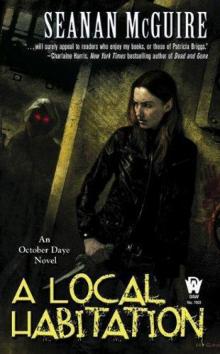 A Local Habitation
A Local Habitation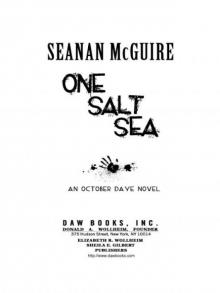 One Salt Sea
One Salt Sea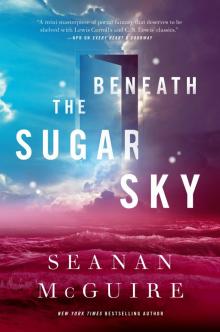 Beneath the Sugar Sky
Beneath the Sugar Sky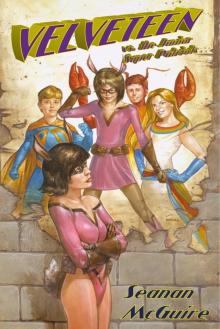 Velveteen vs. The Junior Super Patriots
Velveteen vs. The Junior Super Patriots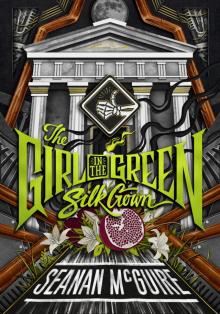 The Girl in the Green Silk Gown
The Girl in the Green Silk Gown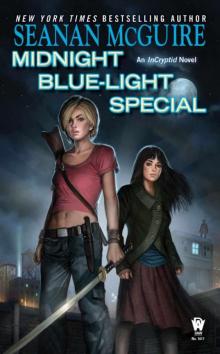 Midnight Blue-Light Special
Midnight Blue-Light Special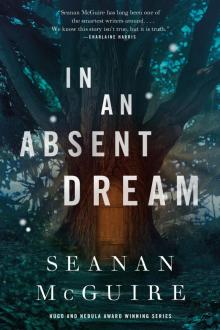 In an Absent Dream
In an Absent Dream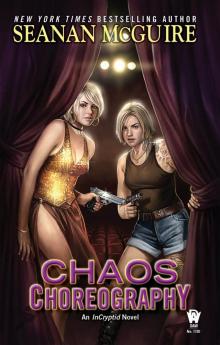 Chaos Choreography
Chaos Choreography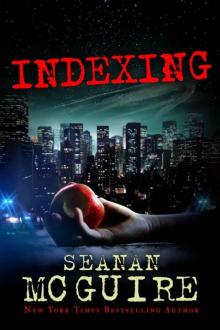 Indexing
Indexing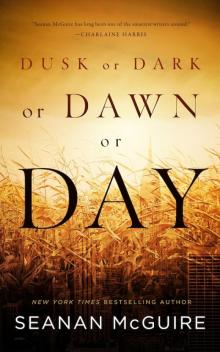 Dusk or Dark or Dawn or Day
Dusk or Dark or Dawn or Day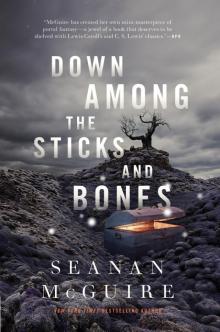 Down Among the Sticks and Bones
Down Among the Sticks and Bones The Razor's Edge
The Razor's Edge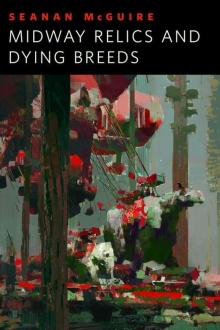 Midway Relics and Dying Breeds
Midway Relics and Dying Breeds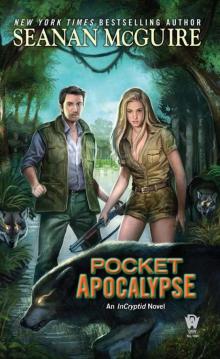 Pocket Apocalypse
Pocket Apocalypse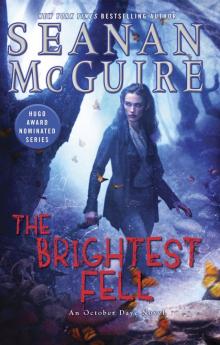 The Brightest Fell
The Brightest Fell Discount Armageddon
Discount Armageddon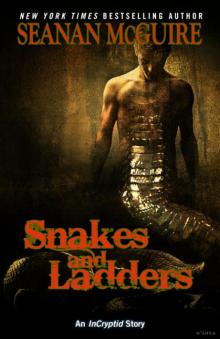 Snakes and Ladders
Snakes and Ladders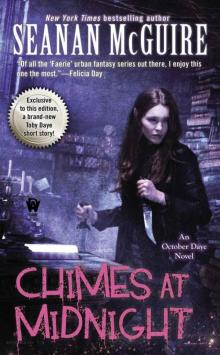 Chimes at Midnight
Chimes at Midnight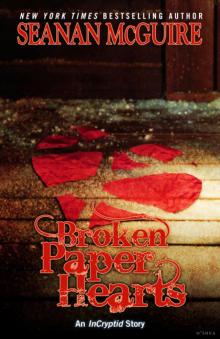 Broken Paper Hearts
Broken Paper Hearts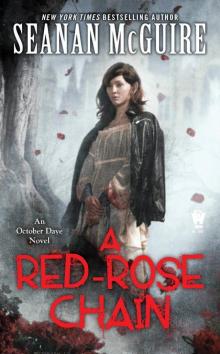 A Red-Rose Chain
A Red-Rose Chain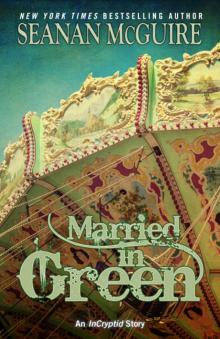 Married in Green
Married in Green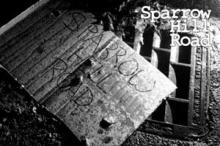 Sparrow Hill Road 2010 By Seanan
Sparrow Hill Road 2010 By Seanan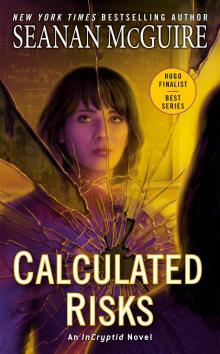 Calculated Risks
Calculated Risks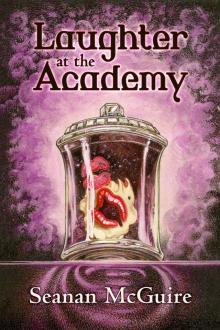 Laughter at the Academy
Laughter at the Academy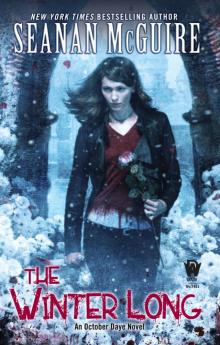 The Winter Long
The Winter Long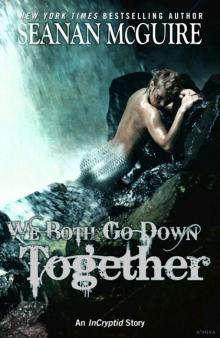 We Both Go Down Together
We Both Go Down Together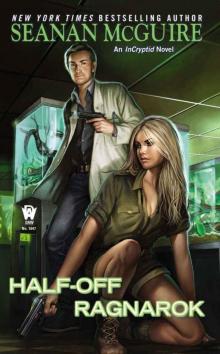 Half-Off Ragnarok
Half-Off Ragnarok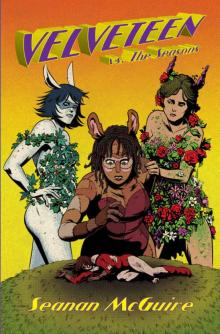 Velveteen vs. The Seasons
Velveteen vs. The Seasons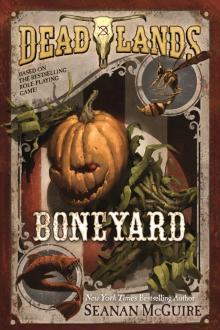 Boneyard
Boneyard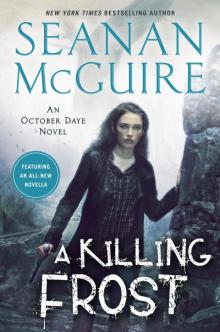 A Killing Frost
A Killing Frost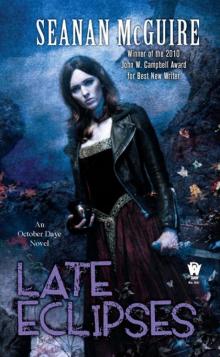 Late Eclipses
Late Eclipses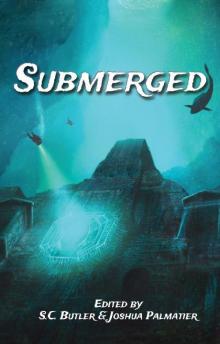 Submerged
Submerged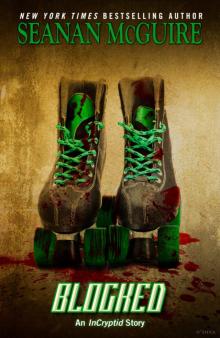 Blocked
Blocked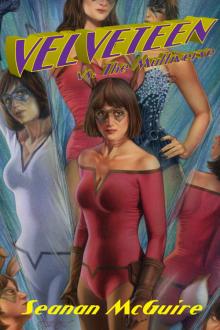 Velveteen vs. The Multiverse
Velveteen vs. The Multiverse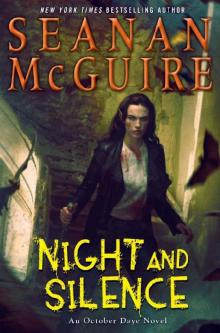 Night and Silence
Night and Silence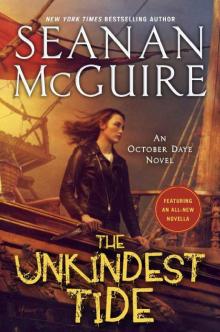 The Unkindest Tide (October Daye)
The Unkindest Tide (October Daye)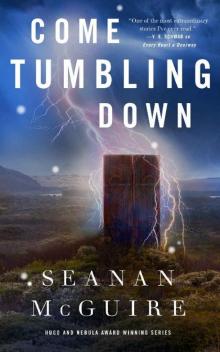 Come Tumbling Down (Wayward Children)
Come Tumbling Down (Wayward Children)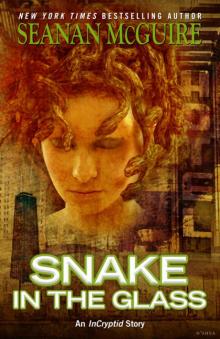 Snake in the Glass
Snake in the Glass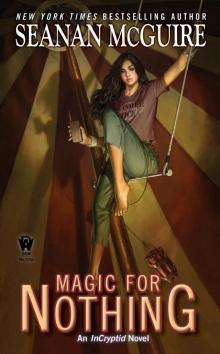 Magic for Nothing
Magic for Nothing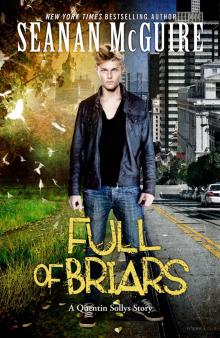 Full of Briars
Full of Briars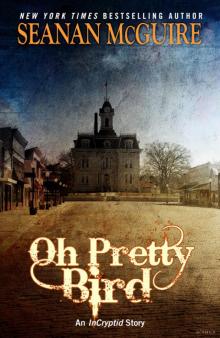 Oh Pretty Bird
Oh Pretty Bird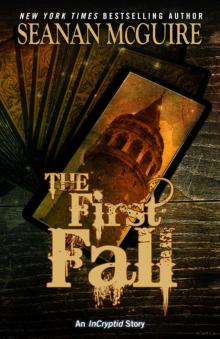 The First Fall
The First Fall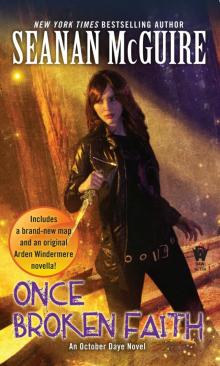 Once Broken Faith
Once Broken Faith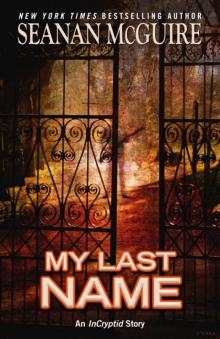 My Last Name
My Last Name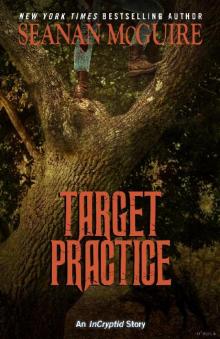 Target Practice
Target Practice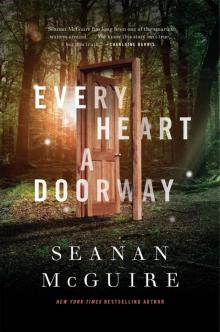 Wayward Children 01 - Every Heart a Doorway
Wayward Children 01 - Every Heart a Doorway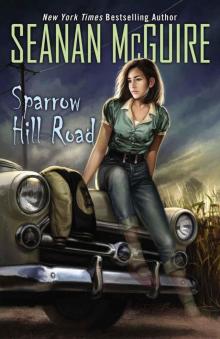 Sparrow Hill Road
Sparrow Hill Road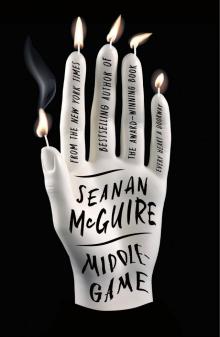 Middlegame
Middlegame Juice Like Wounds
Juice Like Wounds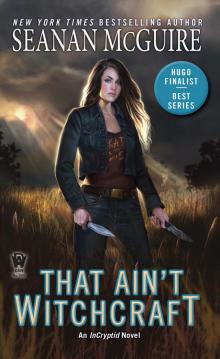 That Ain't Witchcraft
That Ain't Witchcraft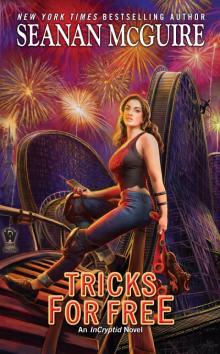 Tricks for Free
Tricks for Free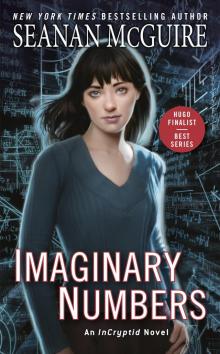 Imaginary Numbers
Imaginary Numbers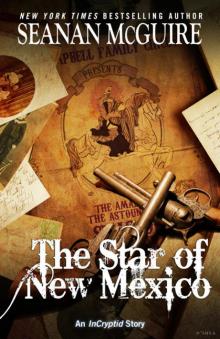 The Star of New Mexico
The Star of New Mexico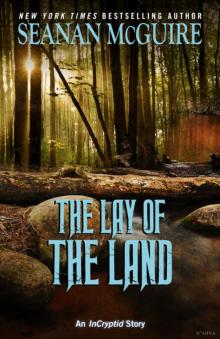 Lay of the Land
Lay of the Land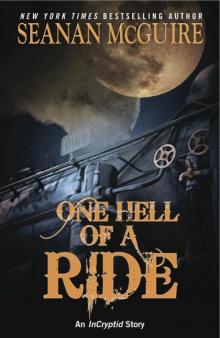 One Hell of a Ride
One Hell of a Ride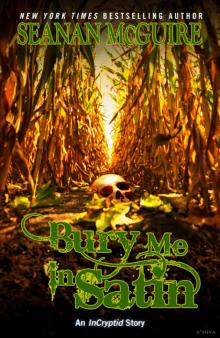 Bury Me in Satin
Bury Me in Satin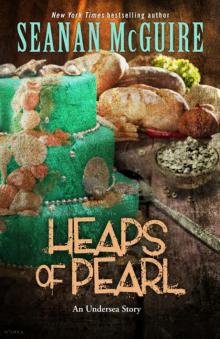 Heaps of Pearl
Heaps of Pearl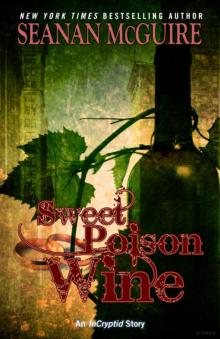 Sweet Poison Wine
Sweet Poison Wine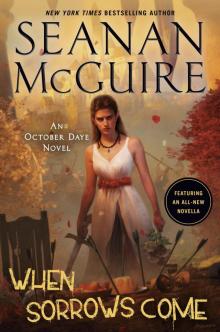 When Sorrows Come
When Sorrows Come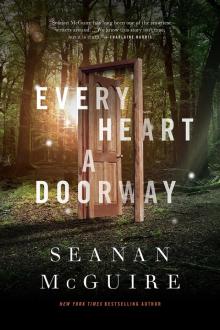 Every Heart a Doorway
Every Heart a Doorway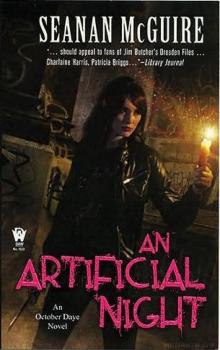 An Artificial Night - BK 3
An Artificial Night - BK 3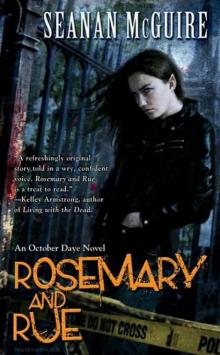 Rosemary and Rue
Rosemary and Rue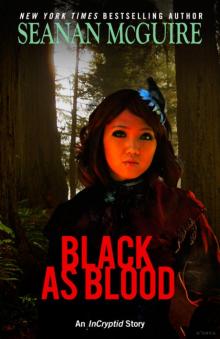 Black as Blood
Black as Blood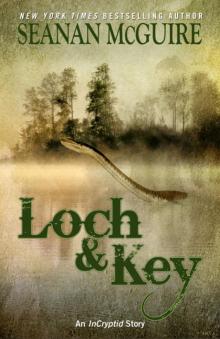 Loch and Key
Loch and Key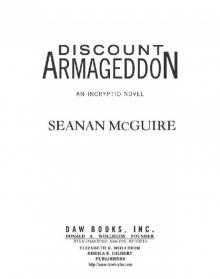 Discount Armageddon: An Incryptid Novel
Discount Armageddon: An Incryptid Novel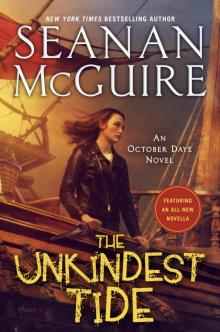 The Unkindest Tide
The Unkindest Tide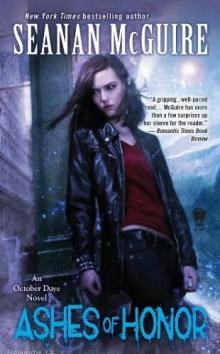 Ashes of Honor od-6
Ashes of Honor od-6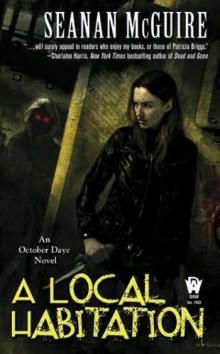 A Local Habitation od-2
A Local Habitation od-2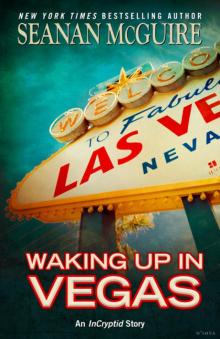 Waking Up in Vegas
Waking Up in Vegas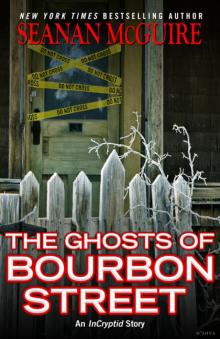 The Ghosts of Bourbon Street
The Ghosts of Bourbon Street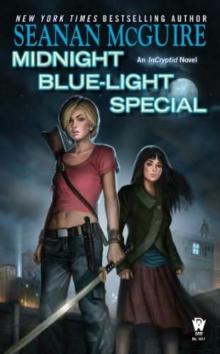 Midnight Blue-Light Special i-2
Midnight Blue-Light Special i-2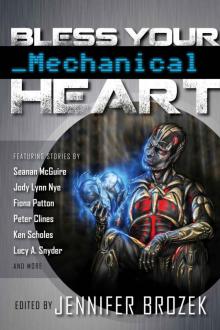 Bless Your Mechanical Heart
Bless Your Mechanical Heart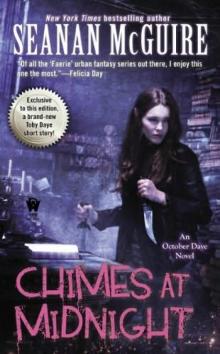 Chimes at Midnight od-7
Chimes at Midnight od-7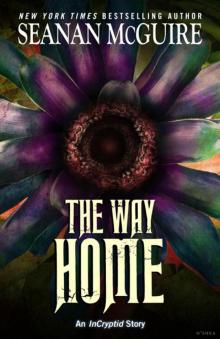 The Way Home
The Way Home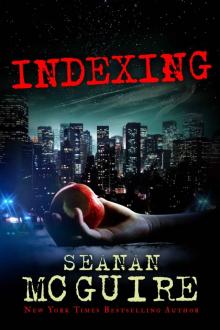 Indexing (Kindle Serial)
Indexing (Kindle Serial)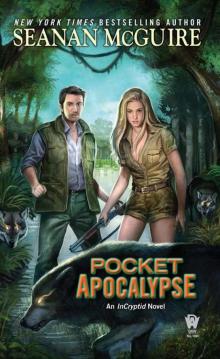 Pocket Apocalypse: InCryptid, Book Four
Pocket Apocalypse: InCryptid, Book Four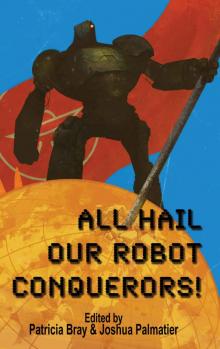 All Hail Our Robot Conquerors!
All Hail Our Robot Conquerors!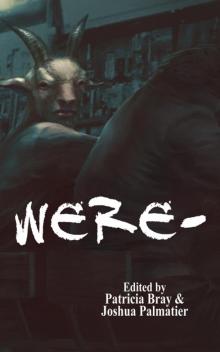 Were-
Were-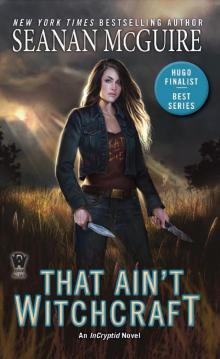 That Ain't Witchcraft (InCryptid #8)
That Ain't Witchcraft (InCryptid #8)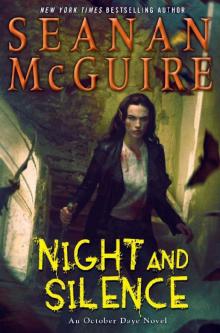 Night and Silence (October Daye)
Night and Silence (October Daye)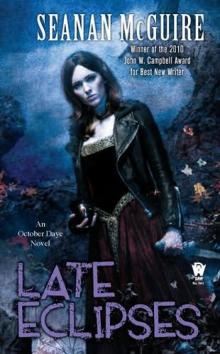 Late Eclipses od-4
Late Eclipses od-4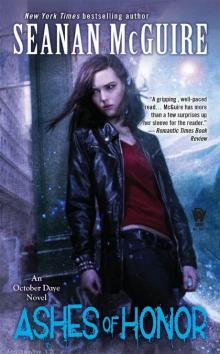 Ashes of Honor: An October Daye Novel
Ashes of Honor: An October Daye Novel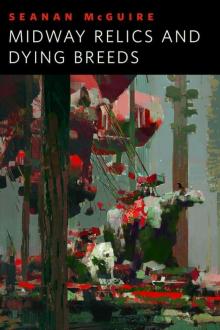 Midway Relics and Dying Breeds: A Tor.Com Original
Midway Relics and Dying Breeds: A Tor.Com Original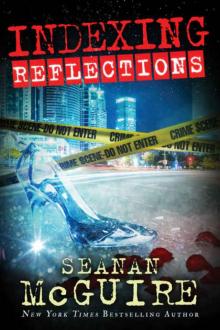 Indexing: Reflections (Kindle Serials) (Indexing Series Book 2)
Indexing: Reflections (Kindle Serials) (Indexing Series Book 2)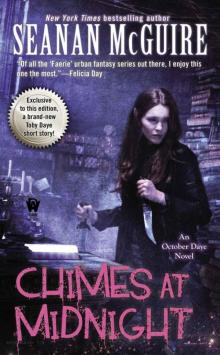 Chimes at Midnight: An October Daye Novel
Chimes at Midnight: An October Daye Novel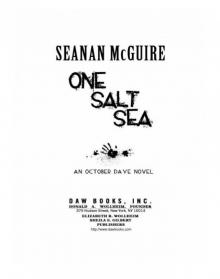 One Salt Sea: An October Daye Novel
One Salt Sea: An October Daye Novel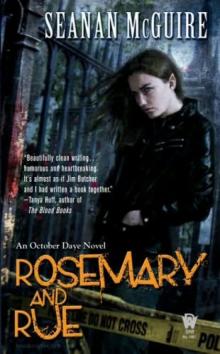 Rosemary and Rue od-1
Rosemary and Rue od-1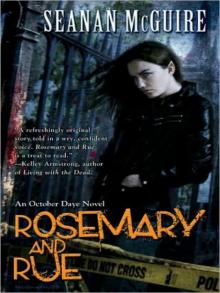 Rosemary and Rue: An October Daye Novel
Rosemary and Rue: An October Daye Novel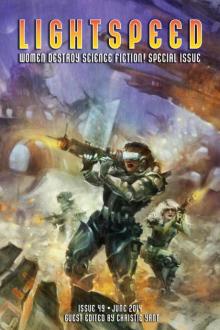 Lightspeed Magazine Issue 49
Lightspeed Magazine Issue 49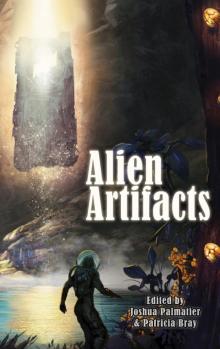 Alien Artifacts
Alien Artifacts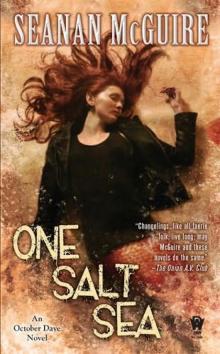 One Salt Sea od-5
One Salt Sea od-5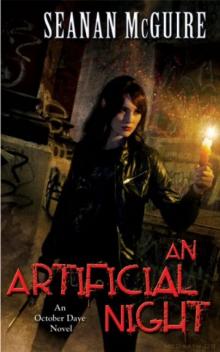 An Artificial Night od-3
An Artificial Night od-3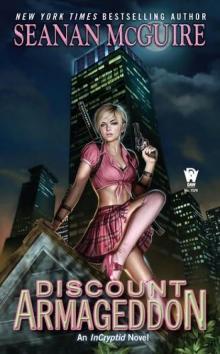 Discount Armageddon i-1
Discount Armageddon i-1